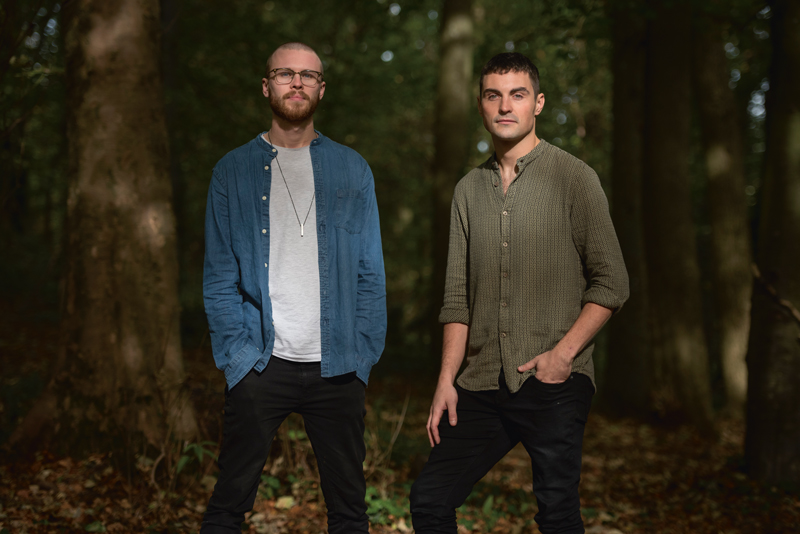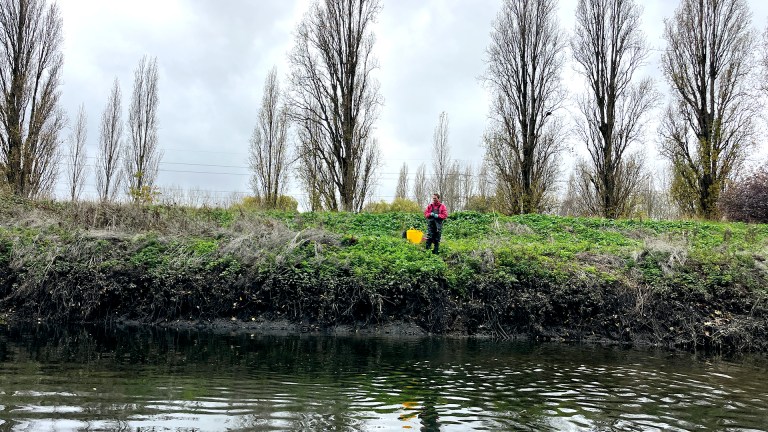So we have tried to mix hardcore conservation with positive stories – from documentaries to animation and live-action drama – in an entertaining and truthful way.
Noise pollution is not like air or water or plastic pollution. If we stop, the oceans would return to their unpolluted state in just 18 hours
Can you walk us through some of the standout films?
One of the most amazing films is A Voice Above Nature by Annie Moir, about sound pollution in our oceans and the effect on whales. She has developed a way of visualising whale calls, so you can see how they resonate through the water. Over the top of that she plays the sound of tanker vessels – and you see how it wipes out the calls of the whales.
They discovered that a whale off the coast of England would be able to communicate with one in Portugal without the damaging effects of noise pollution. But it is not like air or water or plastic pollution. If we stop, the oceans would return to their unpolluted state in just 18 hours. She wants the film to make real waves and lead to policy change.
There is another film about an artist working with scientists to try to save critically endangered African penguins by creating an artificial penguin colony out of sculptures to attract real penguins to a beach where they will be more likely to survive.
We have that alongside the National Geographic photographer Tim Laman, whose film [with Melissa Lesh] Person of the Forest is about orangutans and their diminishing habitat. So it is a journey into conservation in a positive way to inspire us to think about what we can do in our everyday lives.
Advertising helps fund Big Issue’s mission to end poverty
How important is technology in the films you are showcasing?
A lot of people think the best cameras in world make the most amazing films. But to us that is not the case. What matters is a compelling story and you can film that on an iPhone.
If you capture something incredible, no one cares what it is filmed on. It is whether people connect to the story and the message.
Is pure beauty enough in a wildlife film these days?
It is moving away from that. You saw it in Blue Planet II, which touched on conservation like no documentary of that scale had done before.
It is such an important marriage between science and media to get these stories out
If you show images of our natural world now and make it look like people are not there or these ecosystems aren’t affected by people, then it is almost a lie. There are very few places left on the planet that have no human influence. So it is about being honest but trying to find the positivity. You can’t just say, ‘this is our world, it is dying’. You have to give people hope.
Advertising helps fund Big Issue’s mission to end poverty
What have you been filming recently?
Me and Isaac just got back from shooting a passion project in Vietnam. We went to look for the world’s second most endangered primate, the Cat Ba Langur monkey, with its orange head. Very few people know it exists. There are only 69 individuals left on earth, we thought. But one was born while we were there, so now there are 70 on the planet. Scientists helped us film them in the wild. It is such an important marriage between science and media to get these stories out.
What is the importance of wildlife filmmaking in fighting against the climate crisis?
Film has a powerful role to play because that is how we see our natural world. Wildlife film is like no other area of film. It is not a studio production where it is set up and you know what is going to happen. They rely entirely on these animals doing what they do in a natural habitat. So by making these films, we are showing people what is still there.
It is a critical moment. What is so amazing right now is that young people all over world have a voice like never before, just look at Greta Thunberg. There is an understanding now that the world is being passed down to that generation. And films and video media are allowing that to happen through social media.










